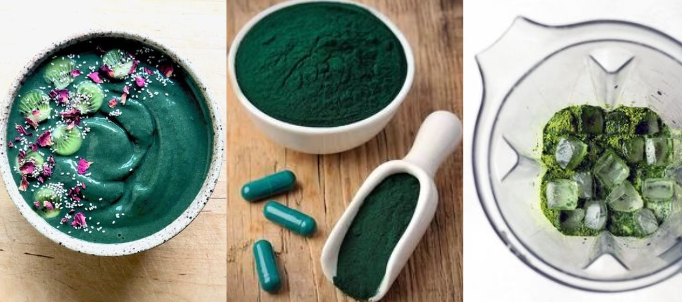Introduction:
Spirulina, a type of blue-green algae, is gaining attention worldwide as a potent superfood. With a history dating back to the Aztecs, who consumed it for its remarkable health benefits, spirulina is celebrated today for its dense nutrient profile and various health-promoting properties. This article explores the benefits of spirulina, its nutritional content, potential health impacts, and how to safely incorporate it into your diet.
What is Spirulina?
Spirulina is a biomass of cyanobacteria (blue-green algae) that can be consumed by humans and animals. Typically found in powder or tablet form, spirulina thrives in both fresh and salt water. It is primarily harvested from non-contaminated ponds and bodies of water, making it a sustainable superfood option.
Nutritional Profile of Spirulina
Spirulina is renowned for its high concentration of nutrients, including:
- Protein: It contains all essential amino acids, making it an excellent protein source, especially for vegetarians.
- Vitamins: Rich in vitamins B1, B2, B3, B6, and B9, as well as vitamin A, C, D, and E.
- Minerals: Provides a wealth of minerals such as iron, potassium, magnesium, and calcium.
- Antioxidants: Contains powerful antioxidants like phycocyanin, which may reduce inflammation and decrease the risk of chronic diseases.
Health Benefits of Spirulina
- Boosts Immune System: Spirulina is known to enhance immune function, helping to ward off infections and illnesses.
- Supports Cardiovascular Health: The antioxidants and anti-inflammatory properties of spirulina can help reduce blood pressure, lower cholesterol levels, and prevent atherosclerosis.
- Enhances Energy and Stamina: The rich nutrient blend in spirulina can boost metabolism and increase energy levels, making it popular among athletes.
- Detoxifies the Body: Spirulina has a high chlorophyll content, which is effective in detoxifying the body by binding to heavy metals and removing them.
- Supports Mental Health: Some studies suggest that spirulina can improve brain function and help in managing mental health issues such as depression and anxiety.
Incorporating Spirulina into Your Diet
- As a Supplement: Add spirulina powder to smoothies, juices, or water for a quick nutritional boost.
- In Foods: Sprinkle spirulina powder on salads or mix into soups and dips for added nutrients.
- Dosage: The recommended daily intake typically ranges from 1-3 grams but can vary based on individual health needs. Always start with a small dose to assess tolerance.
Safety and Considerations
While spirulina is safe for most people, it is crucial to source it from reputable suppliers to avoid contaminated products that could contain harmful bacteria or heavy metals. Individuals with autoimmune diseases, such as rheumatoid arthritis or multiple sclerosis, should consult with a healthcare provider before taking spirulina, as it could stimulate the immune system and exacerbate symptoms.
Conclusion:
Spirulina is a versatile superfood that offers extensive health benefits, from boosting the immune system and enhancing energy levels to supporting cardiovascular and mental health. By incorporating high-quality spirulina into your diet, you can tap into its myriad of nutrients and promote a healthier, more vibrant life.

